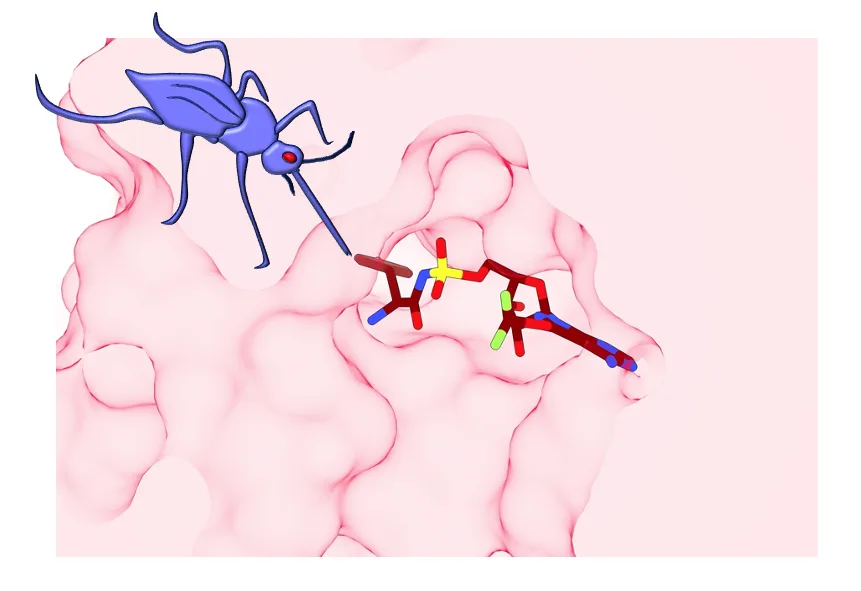Despite the continuous improvement of antimalarial drugs and vaccines, the variability and resistance to treatment of the parasites that cause the disease are a major concern for public health officials Scientists have found a very promising new weapon that can help solve this problem. They have proved how a new compound that secretly infiltrates malaria parasites can make them self destruct. Importantly, it makes them more valuable in the types that are resistant to currently available drugs

The study, led by scientists at the University of Melbourne, pointed to the need for new treatments to help curb hundreds of thousands of malaria related deaths each year. Scientists point out that in the past half century, malaria parasites have developed resistance to seven different drugs. Although the vaccine with a long history has been launched on a large scale recently, new methods are still needed.
Among a class of chemicals called nucleoside sulfonates, scientists have found a special chemical through screening, which can inhibit the growth of malaria parasites called Plasmodium falciparum while protecting healthy cells from damage. This molecule is called ml901. Its mode of action is both interesting and scientific. It disassembles the parasite in a way that opens up a new attack path of future therapeutic drugs.
"Ml901 works through an unusual response hijacking mechanism," said co lead author Professor LeAnn Tilley. "Imagine a stealth weapon that can be used to launch a self destructing attack on your vehicle -- slam on the brakes and cut off the engine power. Ml901 found a special gap in the machine that malaria parasites use to generate the proteins needed for self reproduction and stopped it from doing so."
According to scientists, this effectively makes the parasite self destruct. Ml901 combines with a pantothenic acid and destroys the protein production chain on which the parasite depends. This has been proved in human blood cultures and animal cells. Ml901 has been proved to be effective against malaria parasites resistant to current drugs, and the effect is rapid and lasting. This means that it may not only be used to treat the disease, but also prevent its transmission. It has also shown the potential to prevent infected people from transmitting the disease to others, which is crucial to stopping the spread of malaria.
These promising results provide a springboard for scientists to seek the next generation of malaria drug treatment. The next steps include not only finding drugs with similar effects, but also testing the adjustment of ml901 to improve its absorption and distribution in the body.
The study was published in the journal Science.